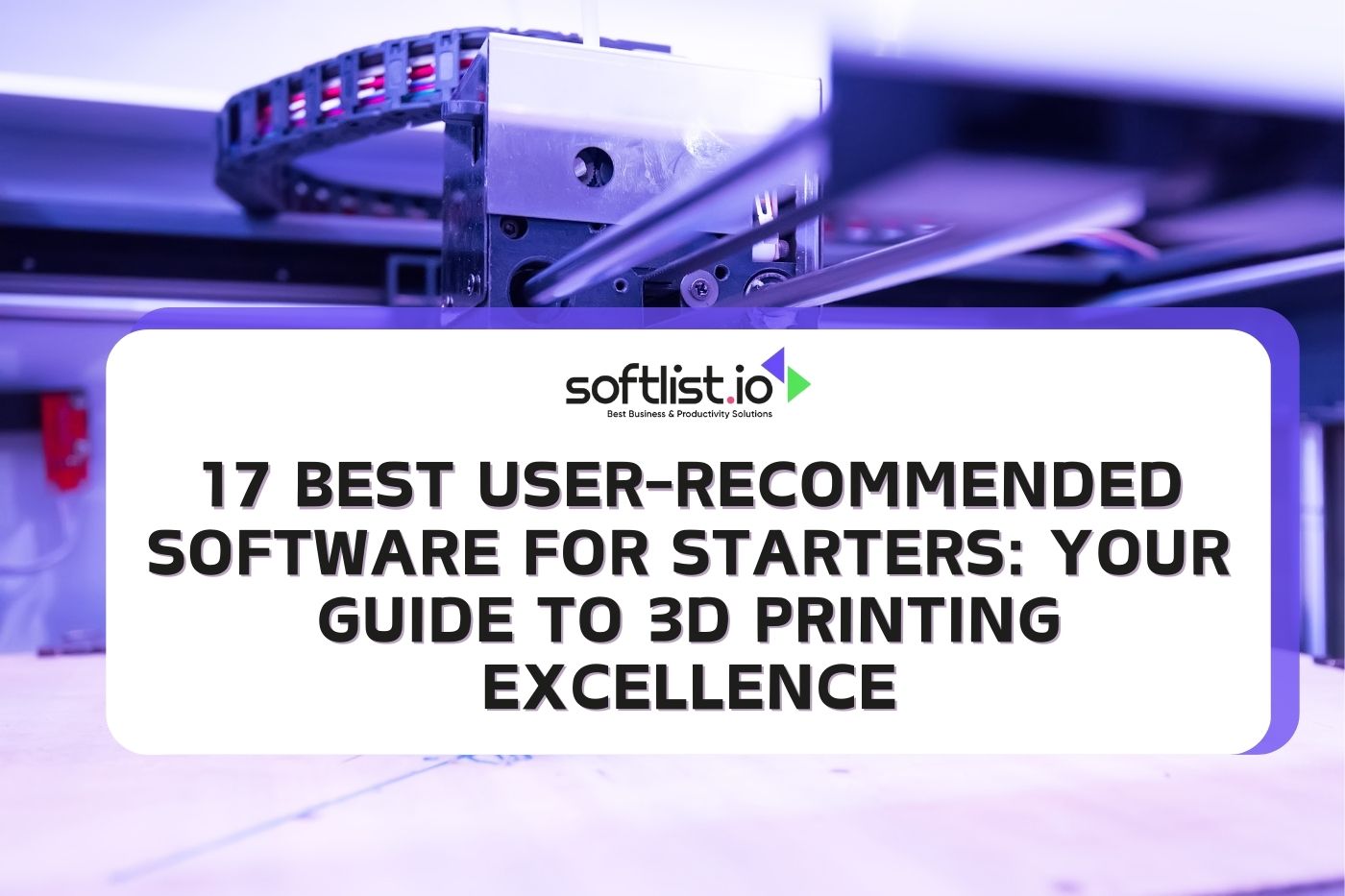Choosing the appropriate software is the first step to success when you embark on the journey of 3D printing, which opens up a world where your creativity takes physical form. The best 3D printing software is available right now, ready to help you realize your ideas.
The abundance of software options available to novices can be overwhelming due to the industry’s rapid growth. However you can find tools that precisely match your needs for usability, affordability, and capabilities by relying on the knowledge of user recommendations.
We present the top seventeen 3D printing software choices based on user recommendations in this post, which should make getting started with 3D printing not only simpler but also more pleasurable. We can help you with everything from choosing platforms that are suitable for beginners to comprehending the key components that improve your 3D printing experience.
Exploring the World of 3D Printing: A Starter’s Guide

3D printing, also known as additive manufacturing, is a transformative technology that allows the creation of three-dimensional objects layer by layer from a digital model. This process has gained immense popularity for its versatility and application across various industries.
For starters, understanding the basics of 3D printing involves grasping key elements such as the 3D printing software and beginner-friendly 3D design tools. 3D printing software acts as the intermediary between the digital design and the physical object.
It translates the digital model into instructions for the 3D printer, controlling parameters like layer thickness and infill density. Beginner-friendly 3D design tools, on the other hand, simplify the creation of digital models for printing.
Top-Rated 3D Printing Software for Beginners
Listed below are the ideal starting point for 3D printing enthusiasts with our curated selection of top-rated 3D printing software designed specifically for beginners.
Streamlined interfaces, user-friendly features, and comprehensive tutorials make these tools perfect for those venturing into the world of 3D printing, ensuring a seamless and enjoyable entry into this exciting technology.
| Software Name | Description | Pros | Cons |
| Autodesk Fusion 360 | Customizable support, excellent print preview, and multi-material support. | Powerful parametric design, cloud collaboration, integrated CAM, and simulation capabilities. | Steeper learning curve for beginners. |
| Ultimaker Cura | Considered the go-to User-Friendly 3D Software for Beginners, Ultimaker Cura excels in simplicity and versatility. | Intuitive interface, extensive material compatibility, excellent community support. | Limited advanced features compared to professional CAD software. |
| PrusaSlicer | Praised for its exceptional 3D printing software features, PrusaSlicer is optimized for Prusa 3D printers, but it works well with others, too. | Slicer customization, helpful tooltips, frequent updates. | Less intuitive for non-Prusa printers. |
| TinkerCAD | An excellent entry point for beginners, TinkerCAD is a cloud-based application offering simplified CAD tools for basic 3D designs. | User-friendly, no installation required, suitable for educational purposes. | Limited features for advanced users. |
| SolidWorks | Widely recognized for its professional CAD tools, SolidWorks is a powerhouse in the field, catering to intricate design needs. | Robust parametric modeling, extensive libraries, excellent assembly capabilities. | High cost, resource-intensive. |
| Blender | Beyond being a powerful 3D modeling tool, Blender is recognized for its versatility, making it a strong contender for various creative projects. | Collaboration features, and version control, accessible from anywhere. | Steeper learning curve, UI can be overwhelming. |
| Simplify3D | Praised for its slicing capabilities, Simplify3D is known for producing high-quality prints with advanced settings. | Customizable support, excellent print preview, and multi-material support. | Relatively expensive, limited updates. |
| MeshMixer | A user-friendly 3D printing software that focuses on mesh editing and manipulation, ideal for fixing or modifying 3D models. | Robust mesh editing tools, easy to learn, free to use. | Not suitable for complex parametric designs. |
| FreeCAD | As a free and open-source parametric 3D CAD modeler, FreeCAD is great for creating detailed 3D designs. | Parametric modeling, modular architecture, extensible. | Less polished interface compared to commercial software. |
| OpenSCAD | A script-based 3D CAD modeler, OpenSCAD is perfect for those who prefer a coding approach to design. | Parametric design, precise control, open-source. | Steep learning curve and is not suitable for visual designers. |
| MatterControl | MatterControl is a versatile 3D printing software that combines slicing, CAD design, and printer control in one platform. | All-in-one solution, user-friendly interface, good for beginners. | Limited advanced features compared to specialized software. |
| Onshape | Known for its cloud-based approach to CAD, Onshape facilitates collaborative design and real-time updates. | Collaboration features, and version control, are accessible from anywhere. | Internet dependency, subscription-based pricing. |
| Tinkerine Suite | Tinkerine Suite is an easy-to-use 3D printing software with a focus on providing a seamless user experience. | Simplified interface, suitable for beginners, built-in slicing. | Limited advanced features for professionals. |
| OctoPrint | OctoPrint is a powerful open-source software for managing and monitoring 3D printers remotely. It offers features like webcam integration and plugin support. | Remote control, plugin system for customization, active community. | Setup can be challenging for beginners. |
| KISSlicer | Known for its speed and efficiency in slicing, KISSlicer is a powerful tool for optimizing 3D print quality. | Fast slicing, excellent for complex models, customizable. | Less intuitive for beginners. |
| Sculptris | Geared towards digital sculpting, Sculptris is an excellent choice for artists looking to create organic and detailed 3D models. | Intuitive sculpting tools, free to use, and beginner-friendly. | Limited in comparison to more advanced sculpting software. |
| 3D Slash | 3D Slash is a voxel-based modeling software that allows users to create 3D models by breaking them down into cubes. | Intuitive, great for beginners, unique voxel-based approach. | Limited compared to traditional CAD tools, not suitable for complex designs. |

